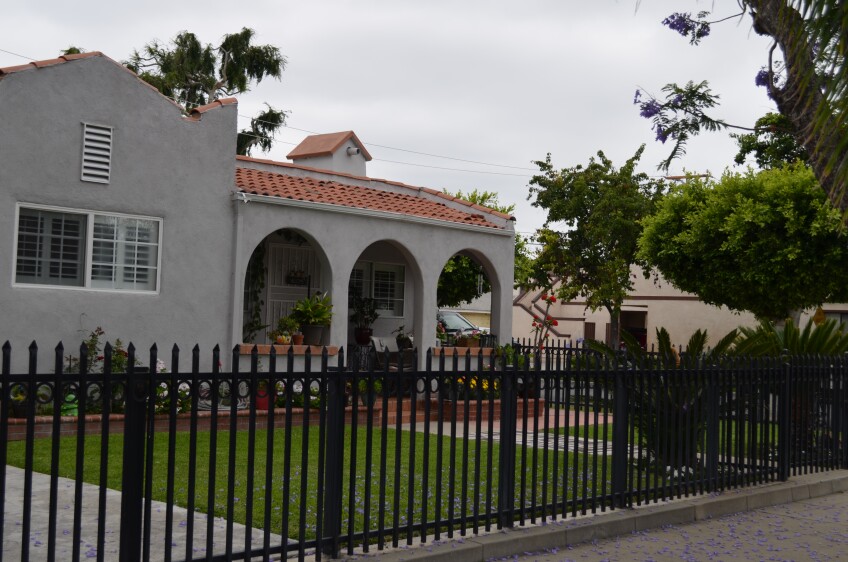This Win Against Housing Covenants in Fullerton Sets Up Landmark Desegregation Cases Nationwide

In 1943, Alex Bernal and his wife bought a house in the Sunnyside neighborhood of Fullerton. Within a week, someone broke into the house and threw the Bernals' belongings onto the street. Soon, everyone else in the neighborhood — 50 people in total — signed a petition asking the Bernals to move. When that didn't work, the neighbors sued Bernal. His crime? He was a Mexican American — and his litigating neighbors argued that made it illegal for him to own a house in the neighborhood, because it had a covenant that allowed only whites to buy in.
Rather than back down, Bernal hired David C. Marcus, a Los Angeles-based lawyer. He argued in court that Mexicans were subject to the equal protection clause of the 14th Amendment of the United States Constitution and that housing covenants violated both the 14th Amendment and the due process clause of the Fifth Amendment.
Explore some of the spaces in Orange County shaped by land rights. Click on the starred map points to read more in-depth stories.
A judge sided with Bernal, saying in his ruling that he "would rather have people of the type of the Bernals living next door to me than Germans of the paranoiac type now living in Germany." The case made national headlines and led Marcus to argue two other consequential civil rights cases involving Mexican Americans: Lopez vs. Seccombe, which helped to desegregate swimming pools in San Bernardino; and Mendez, et al. vs. Westminster, in which Mexican American parents sued four school districts in Orange County against so-called Mexican schools that segregated Mexican American students from their white counterparts.
Bernal never lived in his home after the historic ruling in his favor; his wife passed away from cancer just two years later, and Bernal rented out the house while living with his mother. He sold the house in 1965. His younger children didn't know about their father's fight until his death in 1999, when a reporter told them about it while preparing Bernal's obituary. Today, Sunnyside is almost exclusively Latino.


